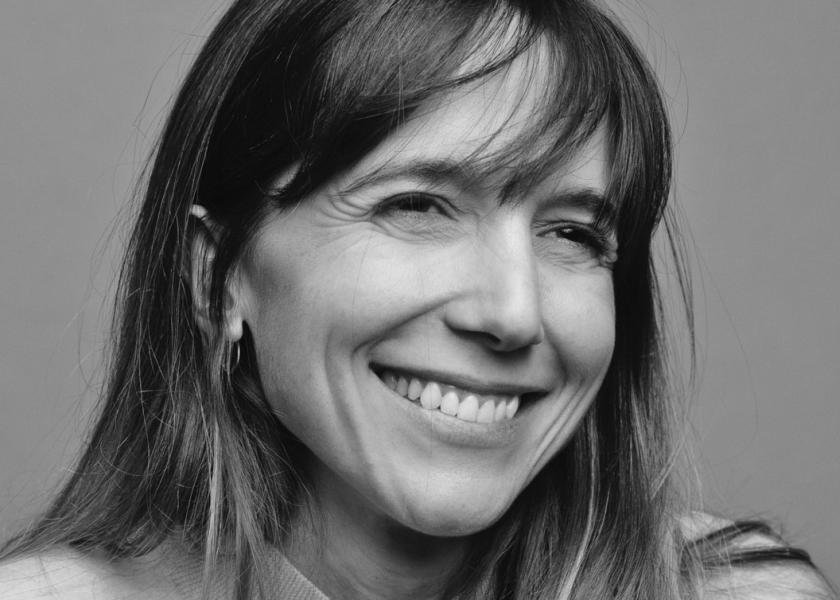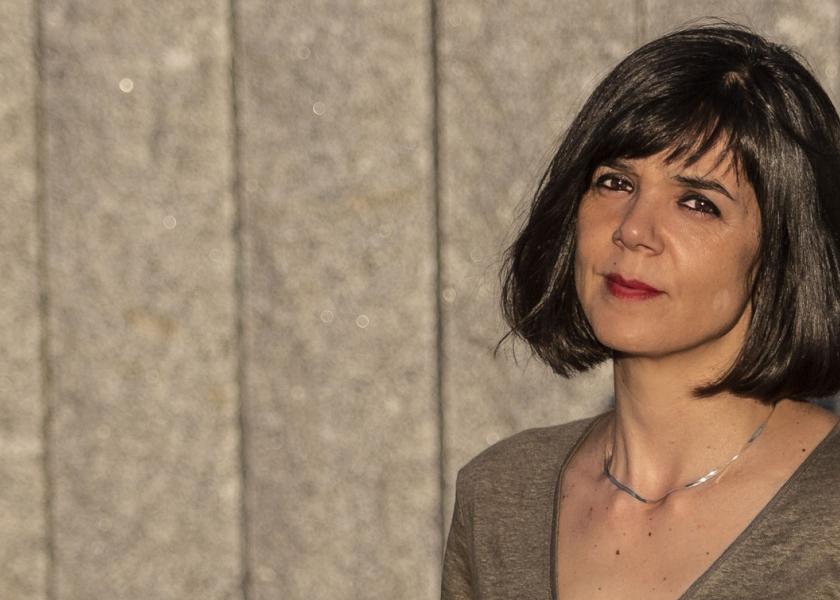Latin American women writers
A new literary boom
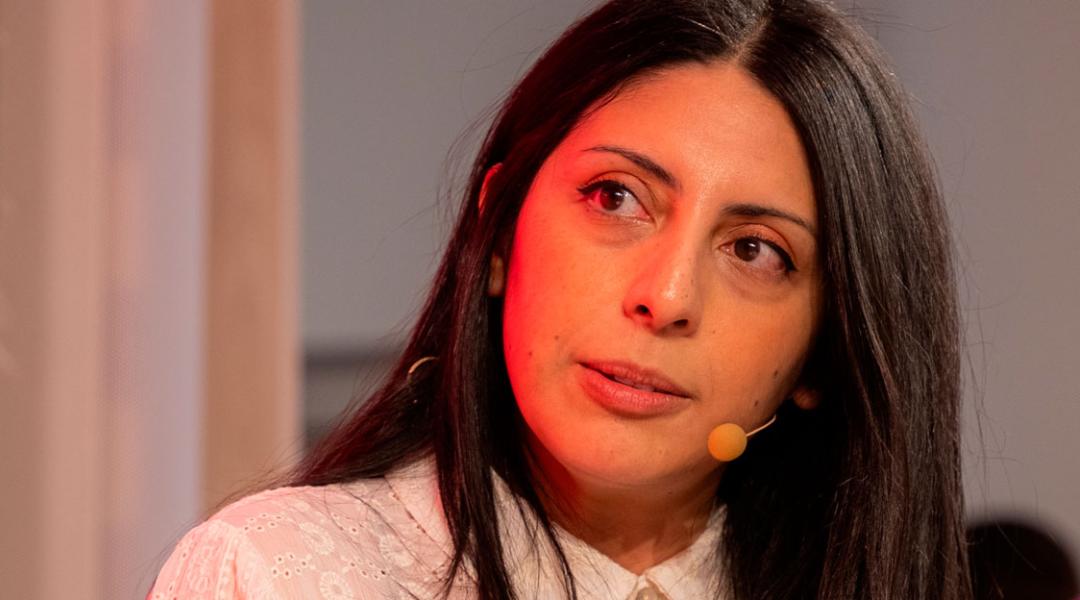
Women’s voices, which have been silenced for a long time, are starting to be heard loud and clear. Literature is no stranger to this phenomenon and increasingly more women writers line the shelves of bookshops. And readers respond by buying and applauding original and committed works, with boundless imagination and a unique sensibility. In Latin America, a generation of talented female authors is part of a boom that is reminiscent of a few decades ago.
During the 1960s, the first Latin American boom occurred. We’re calling it the “first” because the second is in the making. Although that one mainly featured men —Gabriel García Márquez (Colombia), Mario Vargas Llosa (Perú), Julio Cortázar (Argentina), Juan Rulfo (Mexico), Ernesto Sabato (Argentina), Carlos Fuentes (Mexico), Alejo Carpentier (Cuba), Juan Carlos Onetti (Uruguay), etc.—, this one is led by women. A generation of female writers who spark a great deal of interest among readers and who, in turn, enjoy growing international recognition. It’s hard to pin them down, but they do share a feminist commitment that defends the voices of women, a passion for a particular genre, gothic horror, and a taste for lyrical, intimate, and traditional stories. Regarding themes, they deal with some of the consequences that affect their continent, like poverty, drug trafficking, or femicides, and they do so through novels but also short stories, chronicles, or essays.
Next, we will focus on eight of these writers, but there are dozens of them. Therefore, before starting, here is a list of other names to be on the lookout for: Leila Guerriero (Argentina), Valeria Luiselli (Mexico), Nona Fernández (Chile), Guadalupe Nettel (Mexico), Samanta Schweblin (Argentina), María Fernanda Ampuero (Ecuador), María Gainza (Argentina), Fernanda Trías (Uruguay), Virginia Higa (Argentina), Margarita García Robayo (Colombia), Cristina Rivera Garza (Mexico), Ariana Harwicz (Argentina), and many more.
Mariana Enríquez
During the month of March, Mariana Enríquez did a tour around Spain presenting her new book: Un lugar soleado para gente sombría. As if she were a rockstar, this Argentinian writer sold out in Barcelona, Pamplona, Zaragoza, Málaga, Sevilla, Salamanca, and Madrid. Considered the “queen of horror,” her most well-known titles are Things We Lost in the Fire (2016) and Nuestra parte de noche (2019), which won her the Premio Herralde novel award.
Fernanda Melchor
With Hurricane Season (2017), a work that explores violence against women in Mexican society, Fernanda Melchor was nominated for the 2020 International Booker Prize. A few years earlier, in 2013, this writer and journalist had already caught people’s attention with her novel Falsa liebre and, especially, with a collection of chronicles, This Is Not Miami, where she tackled the war against drug trafficking in her state of Veracruz, which is particularly ridden with drugs and violence.
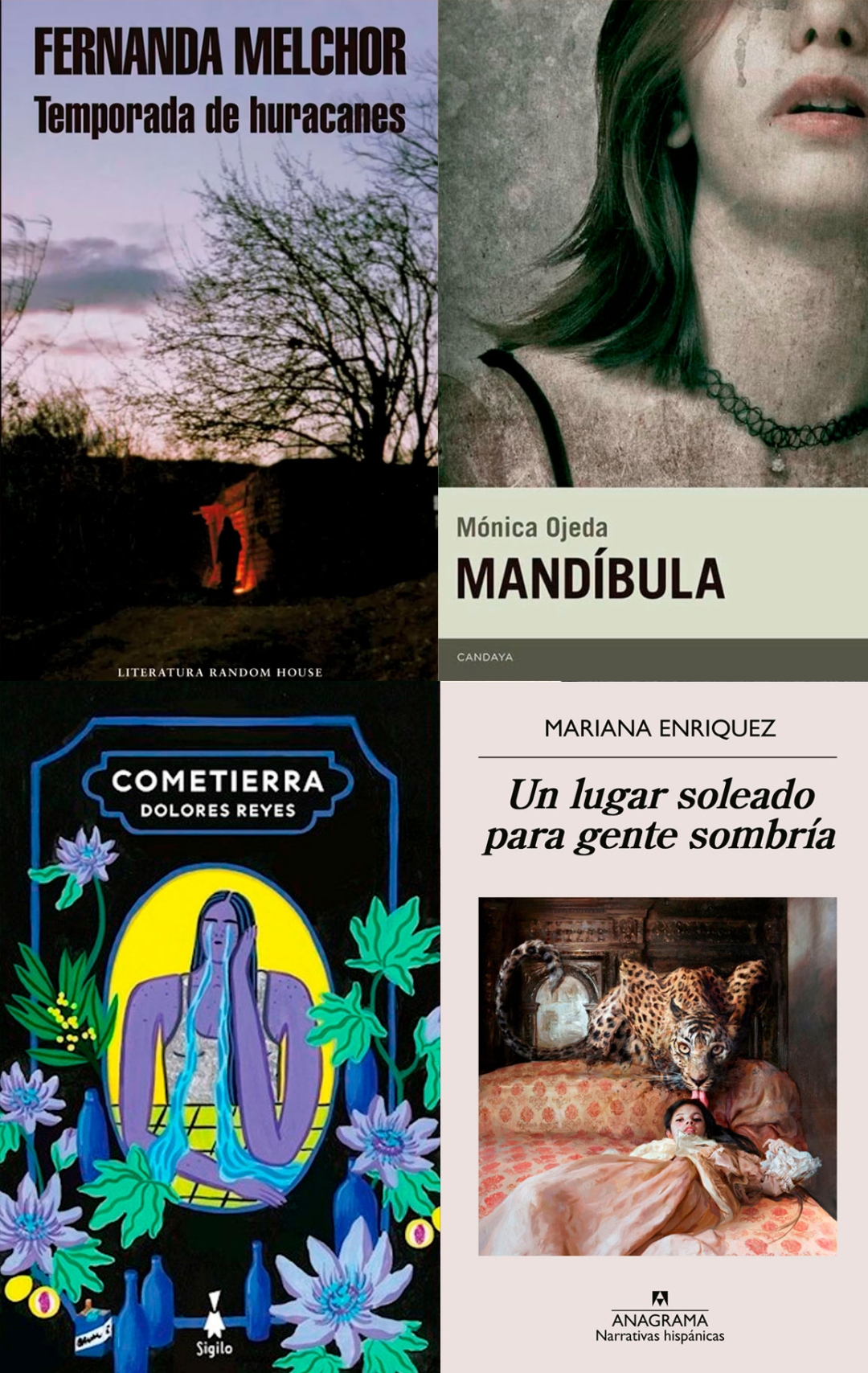
‘Hurricane Season’, Fernanda Melchor, ‘Jawbone’, Mónica Ojeda, ‘Eartheater’, Dolores Reyes & ‘Un lugar soleado para gente sombría’, Mariana Enríquez. © Penguin Random House / © Candaya / © Sigilo / © Anagrama
Mónica Ojeda
Mónica Ojeda, who recently shared a talk with writer Laura Fernández at Espacio Iberia, has just published a new book: Chamanes eléctricos en la fiesta del sol. For Mariana Enríquez, an author whom she has a lot in common with, this is “a book that invites you to a retro-futuristic Andean festival.” This Equatorian writer struggles to surpass herself, since her previous novel, Jawbone, was also a hit among critics and, slowly, one bite at a time, among the public.
Dolores Reyes
With Eartheater (2019), her first novel, Dolores Reyes won over the critics and the general public, and even a streaming platform is already working on its adaptation. The protagonist, a girl with superpowers who lives in a neighbourhood where violence, especially against women, is part of the landscape, becomes an unforgettable heroine. To the joy of her readers, in her second novel, Miseria (2023), this Argentinian writer returns to this universe and these characters.
Elaine Vilar Madruga
Spanish writer Carlos Zanón fell in love with this Caribbean horror story: “I’ll have to read very good books the rest of the year for El cielo de la selva to not be my top read of 2023.” Before, in 2021, Cuban writer Elaine Vilar Madruga had published The Tyranny of Flies (Cálamo Award for Best Book of the Year), a title sponsored by writer Cristina Morales as part of the Editora por un libro initiative —which also led to the publication of Panza de burro by Andrea Abreu—.
Brenda Navarro
The second book published by Brenda Navarro, Ash in the Mouth (2022), which deals with topics like uprooting or inequality based on the story of two brothers who are forced to emigrate from Mexico to Spain, was chosen as Book of the Year by the Bookshops of Madrid. A very special recognition for this Mexican author who has settled in the Spanish capital. She also received the Cálamo Award for Book of the Year and was a finalist in the Mario Vargas Llosa Novel Biennale.
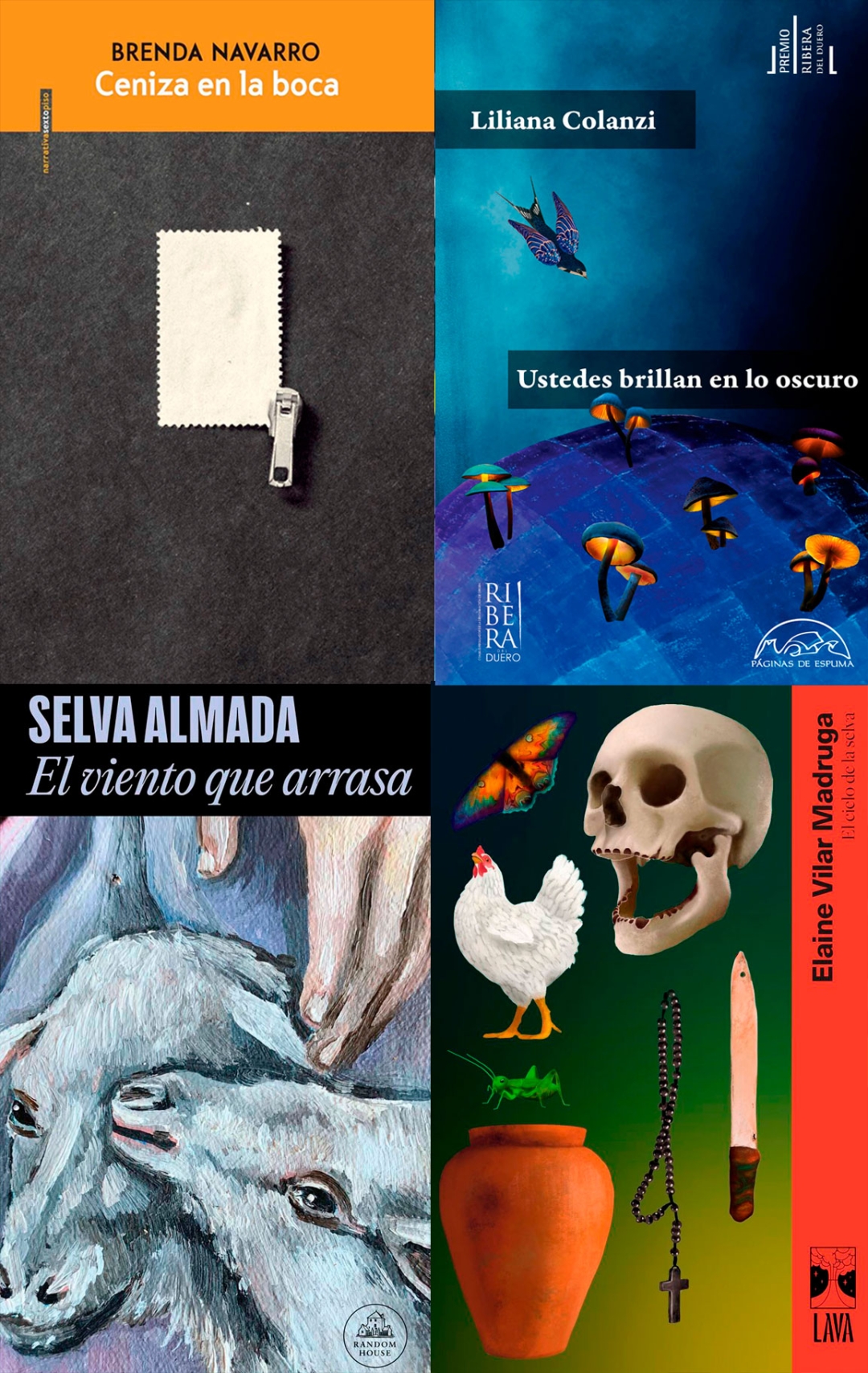
‘Ash in the Mouth’, Brenda Navarro, ‘You Glow in the Dark’, Liliana Colanzi, ‘The Wind That Lays Waste’, Selva Almada & 'El cielo de la selva’, Elaine Vilar Madruga. © Sexto Piso / © Páginas de Espuma / © Penguin Random House / © LAVA
Liliana Colanzi
With her restless and sensory writing, Bolivian writer Liliana Colanzi won the heart of Rosa Montero, president of the jury of the 2022 Premio de Narrativa Breve Ribera del Duero. Thus, You Glow in the Dark, a short-story collection that is both extremely original and expressive, won the award. In 2017, she was already a finalist of the Premio Hispanoamericano de Cuento Gabriel García Márquez for Nuestro mundo muerto, which made her one of the top Latin American female writers under 40 to watch.
Selva Almada
This same year, Argentinian writer Selva Almada has been nominated for the International Booker Prize for her novel Not a River. Originally published in Spanish in 2020, and recently translated into English, it is proof of her growing impact beyond Ibero America. Her career started with The Wind That Lays Waste (2012), a book that sparked comparisons with William Faulkner or Carson McCullers. In the realm of non-fiction, her work Dead Girls describing a series of femicides in Argentina in the 1980s stands out.
On the 29th of May at 7 pm, as a precursor to the opening of the Madrid Book Fair, a round table will be held at Espacio Iberia (Gran Vía 48): La Feria despega con Iberia. Conectando el talento [The Fair takes off with Iberia. Connecting talent]. It will feature Giselle Etcheverry, curator of literary and cultural events and projects, Juan Casamayor, editor, Claudia Neira, director of the Festival Centroamérica Cuenta, and Andrea Stefanoni, founder of La Mistral bookshop. The moderator of the event will be the director of the Fair herself, Eva Orúe, and the conversation will revolve around the efforts made by writers, editors, booksellers, and cultural managers to create new realities and transcend physical boundaries. Paying special attention to the Latin American literary universe, they will also talk about how to shine a spotlight on talent and make it long-lasting. “We’ll be in Gran Vía, a few hours before the Fair opens, to take off with Iberia and celebrate talent,” Orúe explains.
